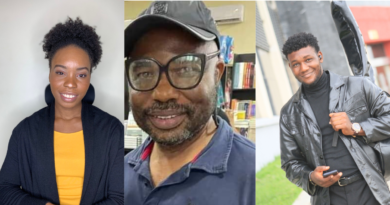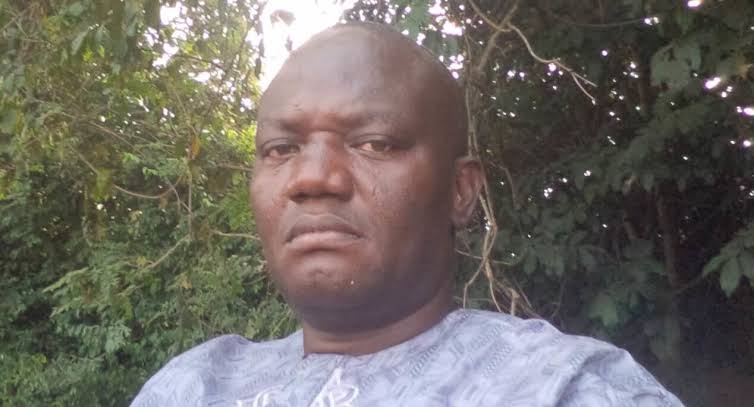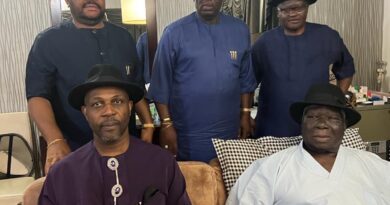Abuja to host environmental forum, By Bashir Hassan
Only recently, Mr. President decried the lack of credit for the achievements of his administration. It was a poignant, even if indirect, criticism of government agencies for their inability to give credible publicity to their activities.
Come to think of it, although the nation is beset by a plethora of challenges, some agencies of government that are lucky to have competent leadership are doing great work for which the government is proud of, to the extent that they are redeeming the nation’s image.
Environmental Health Council of Nigeria (EHCON) is one such organization. It’s not as if the practice of environmental health is a recent development, having been introduced into the country by the British colonial masters – it was largely through this that such public health problems, like yaws that was hyper endemic, were contained. It however remained but remained a mere occupation until the law establishing it as a profession was passed in 2002 that established EHCON as the professional regulatory body. The regulator got a boost recently with the assenting into law by President the amendment bill after languishing in the National Assembly for more than a decade. The amended law upgraded the regulation of environmental health practice in the country.
Since then, the Council has been unstoppable. It has issued about 17 professional guidelines and regulations that cut across various aspects of the private practice — from guidelines to sanitation in the aviation industry, guideline for accreditation of academic programmes in training institutions to guidelines on pest & vector control – to the trail blazer, the environmental health practice regulations which opened up the profession to the private sector.
The Council, in exercise of its role of environmental health practice regulation, has also opened a register and approved six practice areas, namely: inspection of premises; public health pest and vector control; waste collection; air quality monitoring, cleaning services and sewage collection.
Very significantly, according to Dr. Yakubu Mohammed Baba, the Registrar of the Council, these areas are open for private sector participation. “We have issued guidelines where people can come and invest,” he says. It is interesting to note that investment in such areas are avenues for rapid return on investment as the practice areas are basic life supporting services owing to their preventive and promotive attributes.
Indeed, good leadership always makes the difference, and Dr. Baba has to take credit for the accomplishments of the Council.
Who is Dr. Yakubu Mohammed Baba? Born in Azare, Bauchi state, the 48-year old is an interesting story of a real Nigerian. He has received his education from every part of the country — primary, secondary and diploma level training in Bauchi state; Higher National Diploma (HND) in Environmental Health technology at the School of Health Technology in neighbouring Gombe; a Master of Science (MSc),Environmental Health Management from Ladoke Akintola University, Ogbomoso, Oyo state in Nigeria’s South West; and, before then, a Bachelor of Science (BSc) in Environmental Health from Houdegbe North American University,Cotonou, Benin Republic. He then headed east to collect a Master of Public Health (MPH), Imo State University Owerri, Imo State; and returned to the neighbouring Abia state to earn a PhD in Environmental Health and Safety, from Abia State University, Uturu.
In 2021, the Council hosted the first National Environmental Health Summit, which brought together stakeholders in environmental health from across, which exposed a lot of people to knowledge and global best practices in the profession and industry. One of the outcomes of that Summit was a roadmap for environmental health practice. “This roadmap is what we are going to follow religiously to be able to move the profession of environmental health to the global standards,” said Yakubu Mohammed Baba on that occasion.
In line with the resolve to rebrand the profession of environmental health and the need to break barriers and unlock opportunities, EHCON has faithfully followed the script. To demonstrate its intent, and in furtherance of its efforts to promote viable business models for environmental health in the country, the Council is organizing a three-day forum in Abuja for stakeholders in the sector with the theme “Developing Sustainable Environmental Health Business Model In Support of Nigeria’s Economic Diversification Drive”. The maiden forum will address issues in the areas of financing, marketing, technology transfer and mentorship. It aims to avail stakeholders in environmental health the platform to discuss and explore areas for collaborations to achieve common objectives.
The forum is scheduled for 11–13, October, 2022 at NAF Conference Centre, plot 496 Ahmadu Bello Way, Kado, Abuja, starting at 9.00 a.m. daily. It will, among others, feature panel discussions, papers by experts and exhibitions of products and services, which will also facilitate interactions between local and international players in the environmental health industry, as well as provide linkage to financing opportunities. It will be attended by experts in the field, representatives of business organizations, the public institutions and international development agencies.
The lead paper will be presented by Professor Ana Godson R.E.E, Dean Faculty of Public Health College of Medicine, University of Ibadan. Sub-theme papers will be delivered in the action-packed forum by a long list of Nigerian experts. The forum will also be addressed by international experts, including Prof. Susana Paixão, President of the Portuguese Society for Environmental Health and former President of the International Federation of Environmental Health; Ketan Dattani, a UK-based consultant on environmental health resourcing and development; and Dr. Jerry Chaka, a core professional who was once the chairman of the Environmental Health wing of the Health Professions Council of South Africa. Also participating in the forum are Dr. Olawale Tunde Fasanya, Director-General of the Small, Medium Enterprises Development Agency (SMEDAN); a representative of the Ministry of Trade and Investment; the pioneer Vice Chancellor of Kaduna State University and former Director General of the Energy Commission of Nigeria (ECN), Professor Abubakar Sani Sambo; and Major-General. C.U. Agulanna, Senior Research Fellow, Nigerian Army Resource Centre (NARC).
Hassan contributed this piece from Abuja




